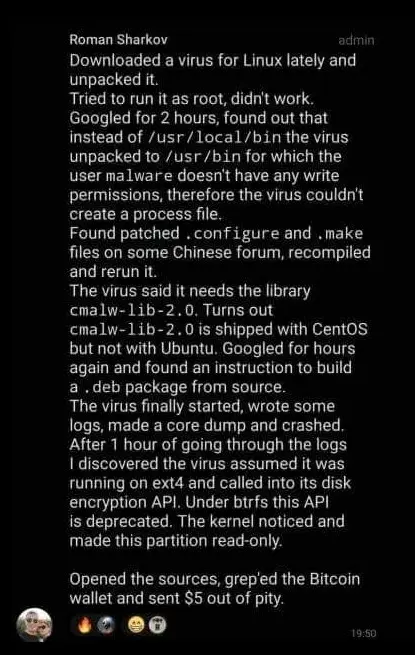You are taking all my words way too strictly as to what I intended :)
It was more along the line : Me, a computer user, up until now, I could (more or less) expect the tool (software/website) I use in a relative consistant maner (be it reproducing a crash following some actions). Doing the same thing twice would (mostly) get me the same result/behaviour. For instance, an Excel feature applied on a given data should behave the same next time I show it to a friend. Or I found a result on Google by typing a given query, I hopefully will find that website again easily enough with that same query (even though it might have ranked up or down a little).
It's not strictly "reliable, predictable, idempotent", but consistent enough that people (users) will say it is.
But with those tools (ie: chatGPT), you get an answer, but are unable to get back that initial answer with the same initial query, and it basically makes it impossible to get that same* output because you have no hand on the seed.
The random generator is a bit streached, you expect it to be different, it's by design. As a user, you expect the LLM to give you the correct answer, but it's actually never the same* answer.
*and here I mean same as "it might be worded differently, but the meaning is close to similar as previous answer". Just like if you ask a question twice to someone, he won't use the exact same wording, but will essentially says the same thing. Which is something those tools (or rather "end users services") do not give me. Which is what I wanted to point out in much fewer words :)
Technically they still are, but since you don't have a hand on the seed, practically they are not.
What happened to my computers being reliable, predictable, idempotent ? :'(
No idea what krysp is, but audio is flawless in my case. Granted, only really used on x11 so far. I use vesktop flatpak on debian sid.
see my other comment
Give Vesktop a try. It's a clone of discord and they say they support wayland for streaming just fine. It works fine but I haven't tried the wayland streaming thing yet.
Ubuntu is a fork of unstable Debian packages
And where do you think debian stable packages come from exactly ?...
it's basicaly the exact same thing. In both case :
- At some point freeze unstable (snapshot unstable in case of ubuntu),
- fix bugs found in the frozen set of packages,
- release as stable.
Not if root account is disabled. Which is by default on Ubuntu and Debian . You'd need sudo su - but well... No sudo left you know.
I tried to convert Debian to Ubuntu by replacing the Debian repos in apt with Ubuntu’s and following with dist-upgrade
Shouldn't it work though ? Or be close to work with the appropriate options passed down to dpkg
It doesn't work with root disabled.
The way to fix this is to boot in bash recovery where you land a root shell. From there you can hopefully apt install sudo if deb file is still in cache. If not, you have to make network function without systemd for apt install to work. Or, you can get sudo deb file and all missing dependencies from usb stick and apt install them from fs. Or just enable root, give it a password and reboot so you can su - and apt install sudo
aptsomething that ended up removingsudo. No more admin rights.- used
rsyncto backup pretty much everything in / , with remove source option... findwith-deleteoption miss positioned. It deleted stuff before finding matching patternchown/chmodon/binand/or/usr/bin- Removed everything in
/etc
If I make sure to leave at peak commute time I’m pretty I can do that just for Paris-Marseille.
Wait just about 100 days and you can make it Paris - Paris.
rumors
You can remove that word, rly.
Also I've read that C# is C++++ (like put those + on 2x2 table, which in turns ressemble a #)
Here is why :)

whatever works for you, but what will you comme up with for "un avion" ? :)
Un lave linge, une machine à laver le linge, un lave vaisselle, une machine à laver la vaisselle. It actually all depend on they way you phrase it. Agreed though. It was mostly for the joke.
It's a she, because that's a woman job. Same goes for dish washer !
Have you ever eard of "fecal microbiota transplant" ? Because that's basically eating shit.
No rational person would accept $100 to eat feces.
Well, actually, big pharma will make you pay for it, which is even better :)
Except that games are broken at release and need day1 patch in order to work. Although you will ship BD, the day update servers are taken down, your physical copy won't allow you to play the game either.
The only question I have is : Is torrenting game patchs / updates concidered piracy as well ? If it is, we are definitely doomed.